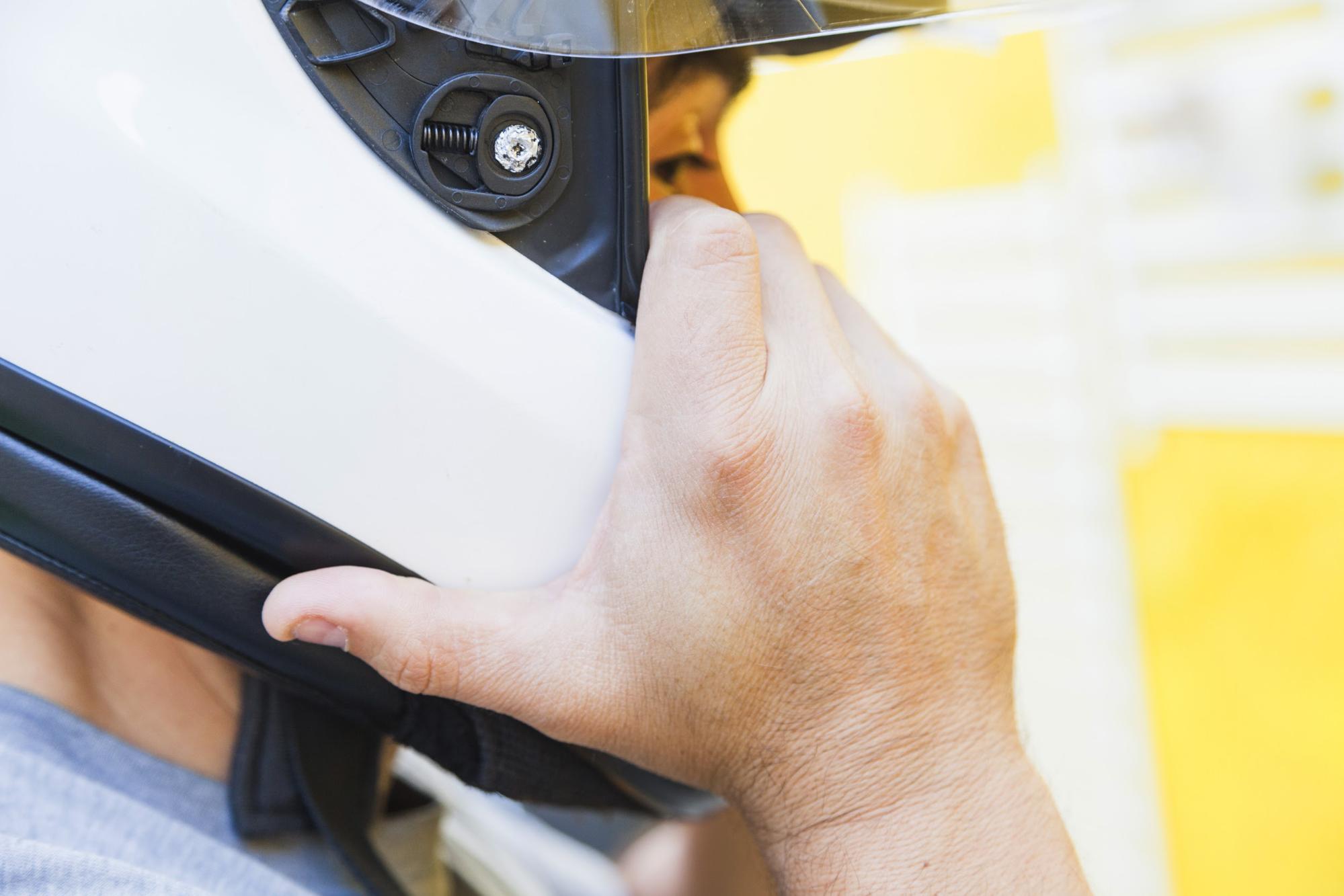
West Virginia Helmet Laws: Motorcycle Helmet Requirements in West Virginia
Riding a motorcycle is a favorite pastime for many West Virginians. Some ride for fun, enjoying roads that wind through the state’s rolling hills and valleys. Others depend on motorcycles as their main mode of transportation outside the winter months.
Regardless of how often you ride, you need to know the motorcycle and moped helmet laws in West Virginia. Here is an overview of what those state laws require and how they can keep you safe.
West Virginia law, states that all motorcycle riders and passengers are required to wear a protective helmet that meets the specifications of Department of Transportation (DOT). the DOT sets the minimum specifications for all helmets sold to be worn as motorcycle helmets.
Both bikers and their passengers must properly wear their helmets, which means helmets must be secured by a head strap or chinstrap.
Motorcycle Helmet Requirement Specifications
The helmet standards, or performance specifications, set out by the Department of Transportation, ANSI, and the Snell Memorial Foundation are similar to one another and each takes into account similar safety considerations.
Protective helmets that meet the requirements of West Virginia law must have stickers identifying them as being certified. Department of Transportation certified helmets must have stickers that say “DOT” or “DOT FMVSS No. 18 Certified”.
In addition to the DOT stickers, you may look for labels from the Snell Foundation or the ANSI.
When looking for a new helmet that is safe and meets highway safety requirements, the National Highway Traffic Safety Administration has the following advice:
- Helmets must have a thick inner layer of foam.
- Headstraps and/or chin straps must have secure rivets rather than plastic buckles.
- Helmets should weigh about three pounds and feel substantial.
- Helmets must not have anything extending more than two-tenths of an inch from the surface of the helmet such as spikes or other decorations.
Other Motorcycle Requirements
Helmets are not the only requirements for those who operate or ride a motorcycle or moped in West Virginia.
Bikes must be outfitted with certain equipment and riders and passengers must comply with other laws too. Here is a list of some common additional equipment requirements for riding a motorcycle in West Virginia:
- Riders and passengers must wear protective eye goggles, or have a compliant face shield on their helmet.
- Motorcycle windshields or windscreens must also be safely constructed with DOT-compliant shatter-resistant material.
- Handlebars or grips cannot be more than 15 inches higher than the uppermost part of the driver’s seat.
- Carrying another person requires a two-person seat or another firmly attached seat behind the driver’s seat that has footrests.
- No passenger can ride side-saddle on a seat.
- Motorcycles can have sidecars that allow one passenger per seat, but all passengers must wear safety belts.
- All motorcycles must have a rearview mirror affixed to the handlebars and fairings so that the driver can see at least 200 feet to the rear.
- Motorcycle operators must use their headlight during the daytime.
Consequences of Not Abiding by Helmet Laws
West Virginia and other states put motorcycle helmet laws in place to protect motorcyclists and passengers from serious injuries in crashes. Failure to comply with state laws could result in both legal and physical consequences.
Legal Consequences
Bikers who do not wear helmets or make sure their passengers wear helmets face legal repercussions that could include traffic citations, motorcycle license suspension, heavy fines, and license revocation after repeat offenses.
If another party causes an accident and you suffer head trauma and brain injuries, not wearing a helmet could reduce the amount of money you may receive as damages.
Physical Consequences
According to the Centers for Disease Control and Prevention (CDC), motorcycle helmets decrease the chance of death by 37 percent when an accident occurs, saving close to 2,000 lives each year across the United States. Additionally, helmets reduce the risk of head injury by almost 70 percent.
Traumatic brain injuries (TBIs) are the most common head injuries that bikers and passengers suffer when they are involved in an accident while not wearing a helmet. Brain injuries can occur in conjunction with a skull fracture too. TBIs range in severity from mild concussions to severe TBIs that include bruising or bleeding on the brain.
Concussions and severe TBIs can cause a wide range of short-term and lifelong complications for brain injury patients. The CDC warns that TBIs can impact accident victims in four areas: thinking, sensation, language, and emotion.
TBI patients might struggle with remembering things and logical reasoning. They might also have challenges with vision, balance, and communicating thoughts and ideas. In some cases, TBI patients cannot speak or put sounds together, and they might suffer from anxiety, depression, increased aggression, and other personality changes.
Some accidents are so severe due to the lack of helmet use that bikers and their passengers might be in a coma indefinitely after a head trauma, or they might end up in a permanent vegetative state (PVS).
Motorcycle Safety Tips
Researching helmets and finding the right match and fit for you and your passengers is the most crucial safety tip for riding your motorcycle. However, other tips can help you avoid accidents or prevent injury or death when accidents do occur.
Make sure your mind is right before getting on your bike. This means not riding around angry or distracted. When your mind isn’t focused on operating your motorcycle, you cannot react to hazards in the road or erratic movements by those in passenger vehicles.
Wear protective gear to protect your body if an accident occurs. This includes not only wearing your required helmet and eye protection such as shatter-resistant eyeglasses, but investing in good riding gloves, a protective jacket, long pants, and sturdy riding boots that can help spread impact forces if you are ever in an accident. Your gear should also be bright colored or have reflective features that help traffic to see you.
Maintain your bike and do a quick check before each ride. If you do not fix issues on your bike quickly or perform regular preventative maintenance, a mechanical failure could cause an accident or make it difficult for you to adequately respond to traffic, road conditions, and poor weather conditions.
Injured in a Motorcycle Accident? Contact Miley Legal Group Today.
As much as motorcycling is a fun way to get around, it can be dangerous if riders do not take precautions. Other motorists sometimes do not see motorcycles and often cut them off, causing accidents that lead to personal injury. Bikers’ only protection between them and the road is the protective gear they wear.
If you’ve recently been involved in a motorcycle accident, then contact an experienced motorcycle accident lawyer who can evaluate your rights, guide you through your legal options, and work to secure the compensation you deserve from the parties at-fault.
Contact The Miley Legal Group today online for a free consultation. We serve clients throughout West Virginia from our offices in Morgantown and Clarksburg.



